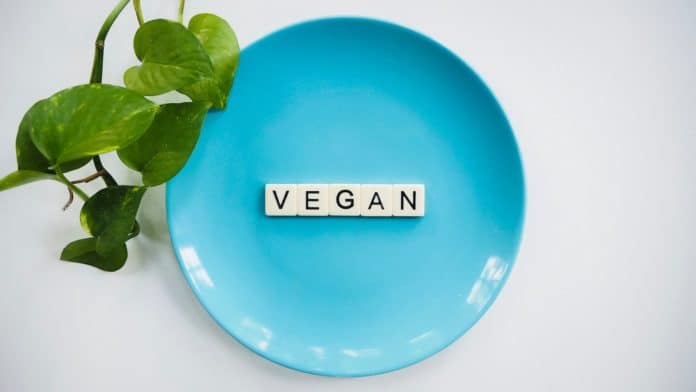Introduction
Veganism is a lifestyle that involves abstaining from the use of animal products, including consumption of animal-derived foods, wearing animal-derived clothing, and supporting any activities or businesses that involve the use of animals.
This guide will cover the health benefits of a vegan diet, how to transition and maintain a vegan diet, and resources for support.
Health Benefits of Veganism
Studies have shown that following a vegan diet can lead to numerous health benefits, such as improved digestion, weight loss, and enhanced cardiovascular health. Additionally, consuming fewer animal proteins has been linked to lower risks of cancer and other chronic diseases. As vegan diets contain fewer unhealthy fats and more plant-based proteins, they can help people maintain a healthy weight and improve their overall wellbeing.
Health Benefits of Veganism
Choosing a vegan lifestyle is becoming more popular due to its many benefits. A vegan lifestyle can benefit people in terms of physical and mental health, as well as protecting our planet by reducing the strain on natural resources. Here are some of the health benefits that come with following a vegan diet.
Reduces Risk of Heart Disease
Studies have shown that following a vegan diet can reduce the risk of heart disease. This is due to the fact that vegan diets are high in fiber and plant-based proteins, which can lower cholesterol levels.
Additionally, vegan diets tend to be low in saturated fat, which can help reduce the risk of stroke and other cardiovascular diseases.
Promotes Weight Loss
Due to its focus on fruits and vegetables, vegan diets tend to be much lower in calories than other diets. This can lead to weight loss over time without having to restrict calories or exercise excessively.
Additionally, vegan diets are rich in fiber, which helps keep you feeling full for longer, so it’s easier to stick to this diet in the long run.
Improves Gut Health
Vegan diets are rich in fiber, which helps promote healthy digestion and gut health. Fiber also helps control blood sugar levels and reduces the risk of Type 2 Diabetes. Additionally, a vegan diet can also help reduce inflammation in the body.
Boosts Immunity
A vegan diet is also high in vitamins and minerals, which can help boost the immune system. By eating plenty of fruits and vegetables, vegans get plenty of antioxidants, which can help protect against cell damage caused by free radicals. Additionally, vegan diets also contain phytochemicals, which can help fight disease-causing bacteria and strengthen the immune system.
How to Transition to a Vegan Diet
Making the decision to switch to a vegan diet can be exciting, but it can also be overwhelming, and it is important to take small steps in order to facilitate the transition. Transitioning to a vegan lifestyle is a journey – just like any other journey, it has its ups and downs – but by taking things one step at a time, you will soon get into the swing of things.
Start by introducing vegan meals into your weekly meal plan. Make sure to include an abundance of plant-based proteins, whole grains, nuts, and seeds. Gradually replace animal-based foods with vegan alternatives.
For instance, try using almond milk instead of cow’s milk, and opt for veggie burgers in place of beef patties. Taking B12 supplements during the transition is also important for maintaining good health.
Step 1: Start Slow
Making significant changes to your diet all at once can be intimidating and overwhelming. If you are used to eating animal products every day, try cutting down gradually. Start by replacing one meal a day with a vegan alternative to get used to the routine. This will make it easier to adjust to a vegan diet in the long run.
Step 2: Educate Yourself
There is a lot of information out there on vegan nutrition. Research and read up on veganism and find out what foods are a regular part of a vegan diet. Learn about essential vitamins and minerals found in plant-based foods. This will help you plan out your meals and ensure that you are getting all the nutrients your body needs.
Step 3: Try Different Recipes and Ingredients
Trying out new recipes and ingredients can be a fun and rewarding experience. There are many vegan recipes and cookbooks available, as well as websites and food blogs. Exploring different ways to make vegan meals more interesting and delicious will make it much easier to stay on track.
Step 4: Learn How to Eat Out
Eating out can be tricky for vegans since many restaurants do not provide vegan options. However, there are ways to make this easier. Try looking for vegan restaurants or look up menus online before going to a restaurant. You can also ask the server before ordering. Most restaurants are happy to accommodate dietary restrictions and will be able to provide vegan options.
Step 5: Find Support
It is important to have a support system when making big life changes such as switching to a vegan diet. Finding a vegan mentor or joining an online group can provide a safe and supportive environment where you can ask questions and get advice from experienced vegans. These resources can also be very helpful if you ever feel like you are struggling to maintain your vegan diet.
Making the transition to a vegan diet is a process and it can take some time to adjust. With the right resources and support, you will soon be comfortable following a vegan lifestyle. So, start small and take your time, and don’t forget to enjoy the journey while you’re at it!
Plant-Based Vitamins and Minerals for Vegan Diets
A vegan diet requires a little extra planning and effort, but the health benefits can be great. A balanced vegan diet includes a variety of fruits and vegetables, legumes, grains, nuts, and seeds, all of which provide essential vitamins and minerals.
Some of the key nutrients you need to be aware of on a vegan diet include:
- Vitamin B12: A key nutrient for healthy blood cells and nervous system. It is mainly found in animal-sources foods, so vegans have to seek other sources such as fortified foods, nutritional yeast, or supplements.
- Calcium: Most dietary calcium comes from dairy products, so vegans must find other sources such as dark leafy greens, tofu, almonds, beans, and fortified plant-based milks.
- Iron: Good sources of iron for vegans include whole grains, legumes, fortified breakfast cereals, dark leafy greens, and dried fruit.
- Vitamin D: This vitamin is found naturally in very few foods and is also produced by the body when exposed to sunlight. People who live in areas with limited sunshine may need to take a supplement or eat fortified foods such as certain breakfast cereals.
- Omega-3 fatty acids: Sources of these essential fatty acids on a vegan diet include flaxseed, chia seed, walnuts, and soybeans, as well as some fortified foods.
Including a variety of these foods in your diet will help ensure that you get all the vitamins and minerals you need from plant-based sources. Eating a wide variety of fruits, vegetables, grains, and legumes will provide the necessary nutrients and help to keep your vegan diet balanced and healthy.
Meal Planning Tips for Vegans
Meal planning is an essential part of following a vegan diet. It can be overwhelming at first, but with some practice and research, vegan meal planning can become second nature. Here are some tips and strategies to help make it easier:
- Start small: Start with one or two meals that you'd like to switch to vegan alternatives. This will give you the chance to explore ingredients and recipes and create dishes that you and your family can enjoy.
- Be creative: Consider adding vegan alternatives to your family favorite recipes. For example, you can swap out meat in your spaghetti Bolognese and use plant-based mince instead. Or try adding vegan cheese to pizzas, burgers, and other dishes.
- Make a list: Keep a shopping list of all the ingredients you need to stock up on. This will ensure that you have all the vegan items you need when preparing meals.
- Plan ahead: Make a weekly meal plan and write down what you will have for breakfast, lunch, and dinner. This will help you keep track of what meals you need to prepare and make grocery shopping easier.
- Have fun with it: Don't be afraid to get creative and experiment with different recipes. There are endless plant-based options to choose from – so have fun with it!
Shopping for Vegan Food
Shopping for vegan food can seem daunting at first, but with a little planning, it can be simple and fun. Here are some tips to make the process easier:
- Make a list of vegan food staples that you always want to have on hand such as plant-based milks, canned beans, nuts, grains, and frozen veggies.
- Check online for vegan brands and products that you might like to try.
- Read food labels carefully to ensure there are no animal products in the ingredients.
- Look for health claims on the label such as USDA Organic, Non-GMO, and Fair Trade.
- Whenever possible, buy locally-sourced and organic produce.
The items you should have in your pantry include whole grain rice, quinoa, oats, beans, lentils, nuts, nut butters, canned tomatoes, coconut milk, and other plant-based milks. You'll also want to stock up on some fresh or frozen fruits and vegetables, depending on what's available in your area.
Having these vegan staples on hand makes it easy to whip up flavorful and nutritious meals. With a little bit of planning and preparation, you can enjoy healthy vegan meals all week long!
Dining Out as a Vegan
Eating out when you’re vegan can be difficult but not impossible. There is an increasing numbers of vegan-friendly restaurants everywhere, so it pays off to do your research. You can even check out online reviews and ask friends for recommendations.
When you’re eating out, always make sure to ask detailed questions about the ingredients in your food. This will help you avoid any potential animal products. It’s also a good idea to look for vegan-friendly restaurant chains like Green Cuisine, Loving Hut, Native Foods, or Veggie Grill. These establishments are great for finding plant-based meals that have been prepared specifically with vegan diets in mind.
In some cases, you may even be able to find smaller vegan-only establishments. As veganism gains traction, more and more vegan-focused restaurants are popping up. These restaurants usually offer a wide variety of delicious vegan dishes — from salads to burgers to large-scale entrees.
Once you know where to look, you’ll find that it’s easy to eat out even if you’re vegan. Just make sure to ask detailed questions and stay away from restaurants that don’t understand or cater to vegan diets.
Where to Find Support
When transitioning to a vegan diet, where you can find support and access more information is essential. Luckily, there are many great resources available to vegans today. Here are some of the best places to look:
- Blogs: There are many amazing vegan blogs out there, providing a wealth of information and inspiration. By following one or two, you can stay up to date on the latest trends and news related to veganism.
- Books: There are numerous books focused on veganism, ranging from cookbooks to more comprehensive guides. Reading these can help strengthen your knowledge about veganism, and provide helpful tips for eating a balanced plant-based diet.
- Podcasts: Podcasts have become increasingly popular in recent years, and there are now several podcasts dedicated to veganism. Listening to these can help keep you motivated and give you access to valuable perspectives and advice.
- Online Support Groups: Joining an online vegan support group can give you access to a community of like-minded people who will offer support and advice throughout your vegan journey.
These are just a few of the many great resources at your fingertips. With the right resources, it’s easier than ever to transition to and maintain a vegan lifestyle.

Recipes: 10 Vegan Recipes to Enjoy
Whether you’re looking for a quick and easy vegan meal to make, or something more extravagant, the following 10 vegan recipes are sure to please. From main dishes to desserts, these recipes are full of flavor and nutritious ingredients.
Chickpea Curry
This quick and easy vegan curry is packed with flavor from spices and herbs. It requires no preparation time and cooks up in one pot for an easy weeknight dinner.
Vegan Lasagna
This vegan lasagna comes together quickly and is filled with flavor. It’s also cheesy and delicious, without any dairy products!
Veggie Fajitas
A twist on traditional fajitas, this vegan take is full of color and flavor. Create your own custom toppings and serve with warm tortillas.
Mushroom & Bean Burgers
A great alternative to store-bought veggie burgers, these easy vegan burgers are made with mushrooms, beans, and plenty of flavorful spices.
Stuffed Peppers
These vegan stuffed peppers are filled with rice, black beans, corn, and a variety of colorful vegetables. They’re topped with vegan cheese and baked to perfection.
Vegan Mac & Cheese
Who said vegan meals don’t include cheesy goodness? This vegan mac & cheese is creamy, flavorful, and easy to make.
Garlic & Herb Roasted Potatoes
This simple side dish is loaded with garlic, fresh herbs, and nutritional yeast for a savory burst of flavor. It’s a great accompaniment to any vegan meal.
Vegan Enchiladas
This vegan enchilada recipe is full of vegan-friendly ingredients like black beans, vegetables, and vegan cheese. They’re easy to make and sure to be a hit with the whole family.
Tofu Stir Fry
This flavorful stir fry is full of vegetables and served with a tasty sauce. Tofu adds some protein to the dish and makes it even more satisfying.
Chocolate Banana Pudding Pie
For dessert, this vegan chocolate banana pudding pie is sure to satisfy any sweet tooth. A combination of bananas, cocoa powder, and almond milk creates a creamy and decadent filling inside a flaky crust.
In conclusion
Many people are drawn to veganism for health, environmental, and ethical reasons. With commitment and some planning, transitioning to a vegan diet can be accessible and enjoyable. Health benefits such as improved digestion, lower body weight, and increased energy levels are just some of the many advantages of adopting a vegan lifestyle.
Cruising around the internet for vegan recipes and support can be a daunting task, especially for those transitioning to a vegan diet. With all the overwhelming information out there, it’s easy to get overwhelmed and give up. That’s why this guide exists! It provides an introduction to veganism as well as tips for transitioning, meal planning, shopping, dining out as a vegan, and finding support. Plus, it offers 10 delicious recipes to try out and helpful resources for further reading.
Being part of the vegan community is more than just eating plant-based foods. It’s about learning how to eat healthily and living sustainably. Fortunately, with the right knowledge and guidance, you can transition to a healthy vegan lifestyle with ease.
But where do you start? This guide provides all the information you need to make the switch to a vegan diet. It covers topics such as the health benefits of veganism, how to transition to a vegan diet, food sources of essential vitamins and minerals, meal planning tips, food shopping advice, tips for dining out, and where to find support.
Additionally, it includes 10 vegan recipes and resources for further reading.
By the end of this guide, you should be feeling confident to take the plunge and commit to a vegan lifestyle. So let’s get started!
Appendix: Nutrition Facts of Selected Vegan Meals
A vegan diet can be healthy and well-balanced if all the necessary nutrients are included in a meal. To ensure that your meals are packed with essential vitamins and minerals, it is important to understand nutrition facts. Below are some nutrition facts for commonly consumed vegan meals.
- Chickpea Curry: This vegan dish is a great source of protein with every serving providing 12 grams of protein. It also contains Vitamin B6, Potassium, Iron, and Magnesium.
- Veggie Burger: A popular vegan dish, veggie burgers are packed with protein at 10 grams per serving. It also contains Vitamin C, Vitamin K, Calcium, and Iron.
- Tofu Pad Thai: One of the most popular vegan dishes, this meal provides 10 grams of protein per serving. It is also a great source of Vitamin A, Thiamin, Riboflavin, Niacin, Folate, Iron, and Zinc.
Frequently Asked Questions about Veganism
What is veganism?
Veganism is a type of diet that excludes any animal products such as dairy, eggs, or meat. It is also an ethical lifestyle that extends beyond diet and seeks to avoid exploiting animals for any purpose including food, clothing, or entertainment.
What are the health benefits of veganism?
Studies have shown that veganism can provide numerous health benefits including lower cholesterol, reduced risk of certain chronic diseases, improved circulation, weight regulation, and improved energy levels.
How do I transition to a vegan diet?
When transitioning to a vegan diet, it is important to start by gradually replacing animal-based foods with more plant-based options such as fruits, vegetables, grains, nuts, and legumes. It can also be helpful to learn how to prepare vegan recipes as well as read up on vegan nutrition.
What vitamins and minerals are needed when following a vegan diet?
Vitamin B12, vitamin D, calcium, zinc, and iron are key nutrients for vegans and it is important to ensure these are included in your daily diet. Plant-based sources of these essential nutrients can be found in foods like leafy greens, nuts, seeds, and grains.
Are there any tips for meal planning for vegans?
Meal planning is important for getting the nutrition you need while on a vegan diet. It can help to create a balanced meal plan including a variety of proteins, complex carbohydrates, fats, and fiber.
It is also important to make sure that meals are varied and include a range of plant-based ingredients.
Are there any tips for shopping for vegan food?
When shopping for vegan food, it is important to look for label certifications that show the product is suitable for vegans.
Additionally, taking a look at the ingredient list can help determine a food’s suitability, as ingredients like gelatin, whey, and honey are often animal-based. It can also be helpful to look for vegan alternatives such as vegan yogurt, vegan cheese, vegan meat substitutes, etc.
Is it easy to dine out as a vegan?
Many restaurants offer vegan-friendly options or can accommodate requests for vegan dishes. Popular vegan-friendly restaurant chains include Veggie Grill, Loving Hut, and Native Foods Café.
When dining out, it is important to inform the server of any dietary restrictions and to ask questions to ensure that the dish is vegan.
















